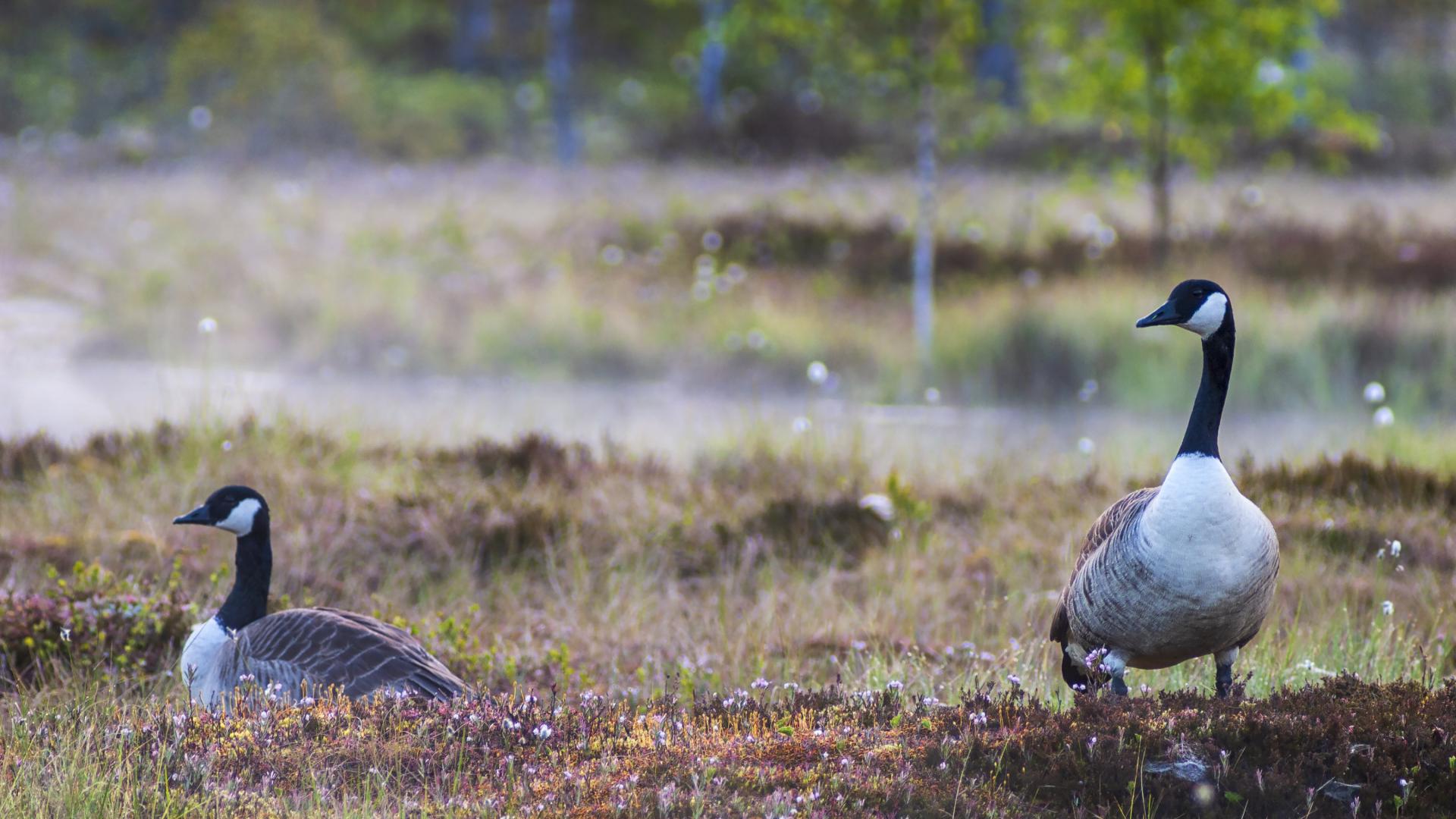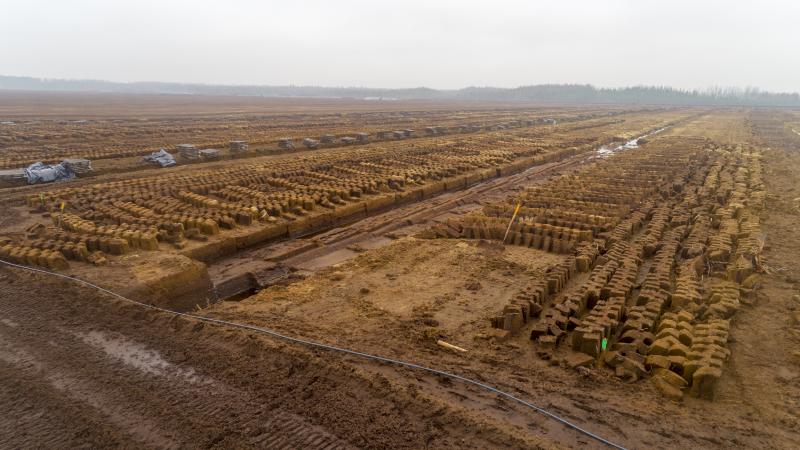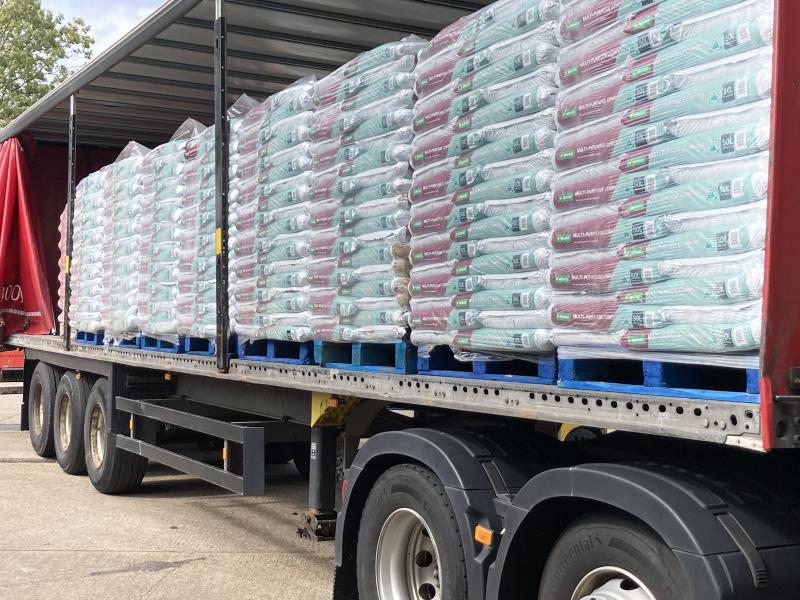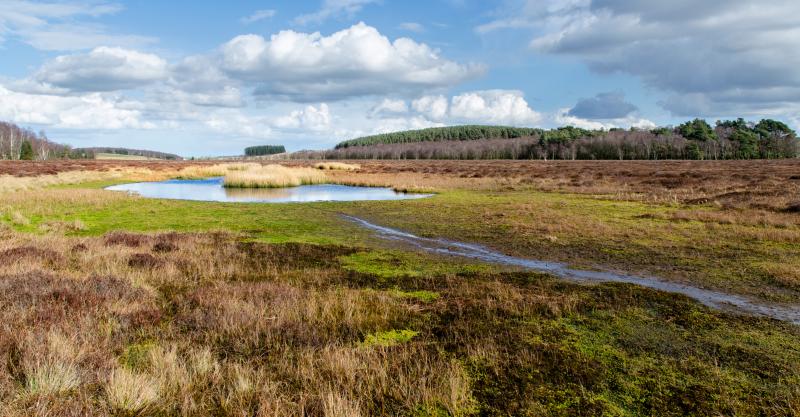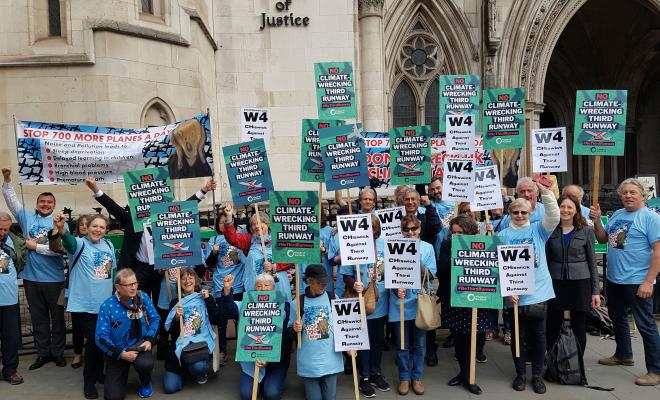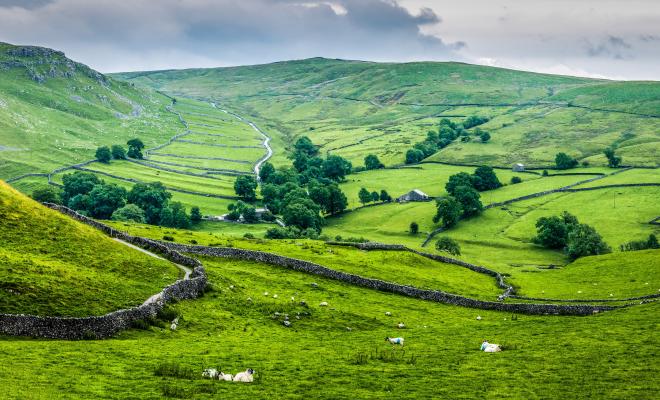Paul de Zylva12 Nov 2025
Britain’s peatlands are unique in many ways. They should be our ally in helping to curb climate change, restoring Britain’s dire state of nature and reducing flood risk.
But the dreadful state of the nation’s peatlands means they are being prevented from playing their full part – and there’s no mystery why.
After decades of delay by successive governments, ministers must stop giving the peat industry more time and close the loopholes that still threaten this invaluable resource. In October 2025 the government said " We will legislate a ban on peat and peat-containing products when Parliamentary time allows" - the same line as the previous government, which also failed to legislate promptly.
The dire state of the nation’s buried treasure
The UK’s peatlands have been degraded by a combination of decades of harmful peat extraction, bad land-management practices (such as the burning of peat moorlands) and a failure to invest in the restoration of all peatlands.
The UK has behaved as though it can afford to let the best tools in its environment toolkit get rusty and blunt. Yet the costs of protecting peatlands are tiny compared with the costs of letting them decline. The dreadful state of the nation’s peatlands means that instead of continuing to quietly store carbon as they have for thousands of years, they are leaking vast volumes of climate-changing gases.
Allowing peatlands to switch from being carbon stores to a source of emissions makes no sense on any level. It also undermines the good actions that some sectors of the economy are taking to cut their climate emissions and kick the fossil fuel habit.
And as the peat we use is also sourced from Ireland and the Baltic states, the impact is not on the UK’s carbon emissions alone. Peat sold in this country has already released carbon where it was dug up, adding to the global accumulation in the atmosphere.
Ministers must stop dithering and do three things to stop the peat scandal.
End peat sales now
Many people think peat is already banned. After all, the government has talked about ending peat use since the turn of the Millennium.
Friends of the Earth is a member of the Peat Free Partnership who are campaigning to end peat sales. You can support them by signing their petition here.
The idea of ending peat use started looking likely in 2011. That’s when ministers asked the gardening and horticulture trade to start phasing out peat and to give their customers a real choice to go truly peat-free.
But the trade dragged its feet, lobbied against ending peat use and made wild claims about peat being essential for growing and gardening. (It isn’t).
One pro-peat journal even claimed people would turn their front gardens into car parks if they couldn’t buy peat. Too many gardens are being lost to hard surfacing but that is happening for other reasons.
The irony is that no one really needs to use peat to garden successfully. Garden borders, allotments, patio pots and window boxes will be productive without peat. In fact, peat never used to be used much in gardening. It’s just that peat has been marketed heavily and made widely available, stacked high and sold at rock-bottom prices. Peat often the usual or only choice.
By 2015 and again by 2017, it was clear to everyone that the industry was not on track to end peat use by 2020, as ministers wanted. It didn't help that ministers took their eye off the ball and thought they could rely on the industry to regulate itself. We and others told ministers the voluntary approach wouldn't work, but were ignored.
Despite failing to act, the trade has lobbied ministers to give it more time and even to scrap plans to end peat use.
By failing to stand up to the trade’s delaying tactics, ministers have allowed further erosion of the nation’s peatlands and undermined their own climate and nature aims. Letting the sector act at its own pace means peat will still be in use years after ministers said they wanted it replaced by peat free composts.
Invest in restoring all of Britain’s peatlands
The government also needs to get serious about restoring the natural condition of the nation’s peatlands, our largest land-based carbon store. Letting degraded peatlands continue to leak carbon is counter-productive and makes a mockery of the government's aspiration to lead global action on climate change and get other nations to follow suit.
To its credit, the government has invested modest sums to restore an equally modest 35,000 hectares in England's peatlands by 2025. It was a good, if modest start, because a far higher amount of England's 1.4 million hectares of peatland should be being restored every year. Ministers must therefore commit to proper funding to pick up the pace and sustain the lasting action that's needed. Restoration can show quick progress - but peatlands will need decades to fully recover from the damage inflicted by years of neglect and mismanagement.
Ministers must get real about proper funding for wholesale peatland restoration. Restoring only some peatlands is not good enough, when all peatlands need to be returned to good condition, so they stop leaking carbon and play their full part in storing carbon, restoring nature and reducing flood risk.
Restoring peatlands makes sense on many levels, especially economically, because doing so will be less expensive than the higher costs to come if peatlands are allowed to decline.
Restoring peatlands works and is good value for money. Successful restorations are in hand across the UK from Scotland, the Dorset Heaths, Lincolnshire Fens, Norfolk Broads, and Somerset Levels to the uplands of the Great North Bog across Cumbria, Lancashire, Northumberland and Yorkshire.
To put costs into perspective, the government estimates flooding in the past decade has cost the economy £1.6 billion. That compares with ministers giving £50 million to restore 35,000 hectares of England’s peatlands by 2025.
From 2025 to 2030, ministers say they “…will invest £85 million to restore and manage peatlands” and that they are “committed to restoring approximately 280,000 hectares of peat by 2050.” But it's not clear ministers’ money and ambitions will be enough to properly protect and restore all of England’s peatlands, from upland moorlands to lowland fens, so that they play a fully-functioning role - from storing carbon and supporting wildlife to reducing flood risk and providing a quarter of our clean drinking water.
End the burning of peat moorlands
There’s no excuse to burn peat – it’s lazy bad practice that should have no place in the responsible use of land.
Burning dries out and degrades the soil and its ability to absorb and retain water, including holding back potential flood waters. Burning means the land supports a reduced range of plant species, which in turn support a less diverse range of insects, birds and other wildlife.
Claims in favour of burning include that it controls vegetation which can dry out and be vulnerable to unplanned wildfires. That argument falls down because peatlands are meant to be wet. Managing them properly means ensuring they are, and peatlands that are properly wet are more resilient to wildfires than dried out moorlands.
In 2021, the government restricted the unlicensed burning of heather and other types of vegetation on protected blanket bog habitats especially in important nature areas such as Sites of Special Scientific Interest (SSSIs) and Special Areas of Conservation (SACs). That’s the minimum you’d expect. But as many peatlands exist outside ‘protected’ nature areas, vast swathes of UK peatlands are still at risk of being burned by irresponsible landowners and managers, who claim to be guardians of the countryside.
A hugely positive government move came in September 2025 when ministers extended the ban on burning from the 222,000 hectares covered to apply to 676,628 hectares of deep peat. The signs are that ministers understand peatlands can’t be protected if long-standing poor land management practices persist.
And our peatlands are still at risk
Beyond burning and mismanagement and despite the importance of peatlands as habitats, for flood prevention and as carbon stores, many are still threatened by the planning of housing, roads and wind energy such as recent threats to Danes Moss (Macclesfield), Walshaw Moor (Calderdale), Carrington Moss and Chat Moss (Manchester), and Scout Moor (north of Manchester).
Ending the peat scandal is still unfinished business.
Decades of missed targets and unmet pledges to protect nature cement the UK as one of the world’s most nature- depleted nations. Despite a promise in the 2024 election manifesto that " Labour will expand nature rich habitats such as wetlands, peat-bogs...", when Sarah Dyke MP proposed a peat bill in 2025, ministers declined to back the initiative. Labour ministers repeat their predecessors' line that they will legislate when they find the time.
With extremes of flooding and more frequent droughts, often with greater costs, ending peat use and protecting and restoring all peatlands would be a quick win for the UK government. Especially as it's already way off-track with its nature restoration claims and pledges and with its legal Environment Act targets.


